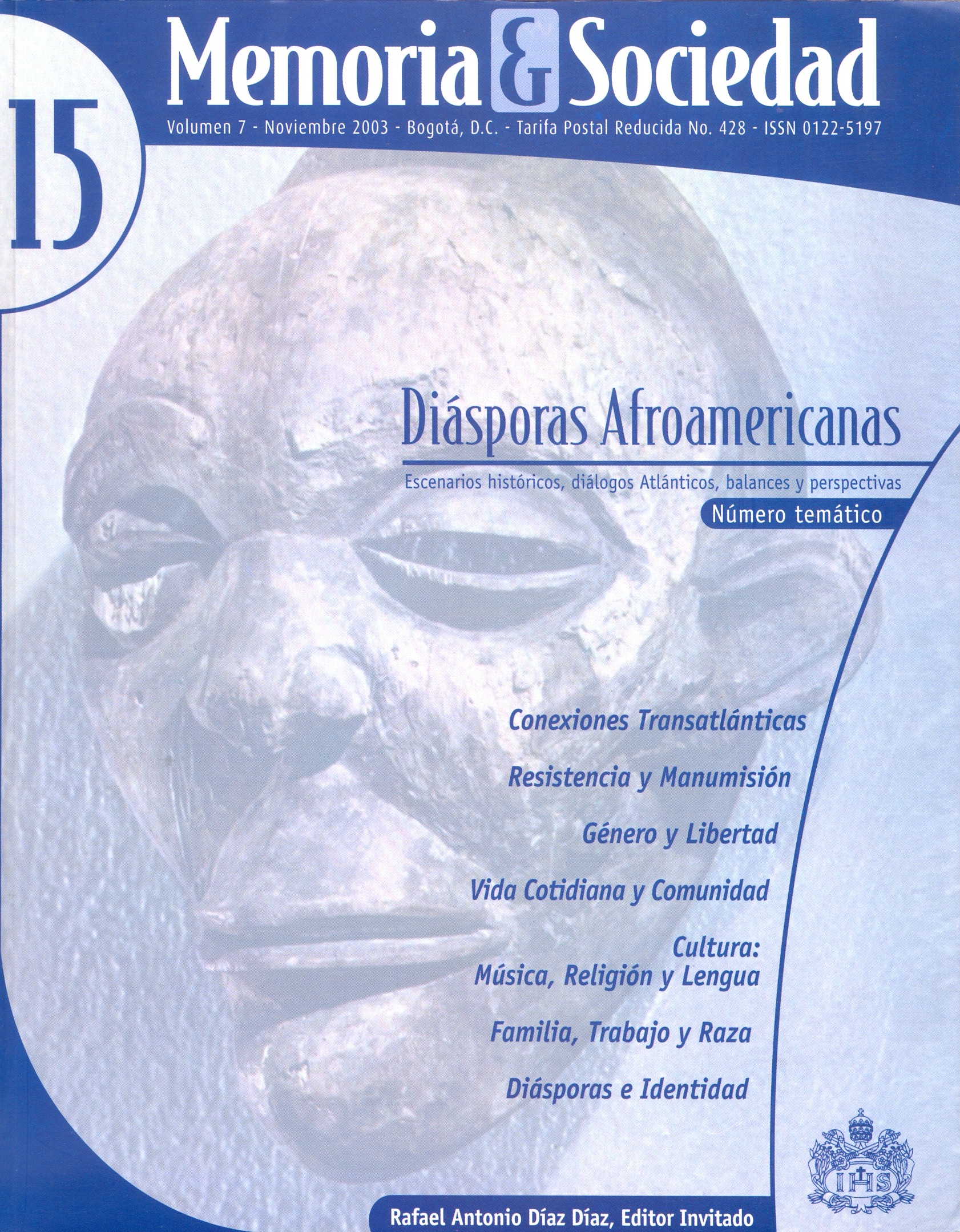Abstract
The city of Buenos Aires was founded, for the second time 1580 essentially as an outpost of the Spanish Empire to be protected from Indian attacks and possible foreign incursion, basically Portuguese in origin. Thus, from the beginnings of the city's founding, African slaves were used for the defense of the city. They acted in the urban militias, and were outstanding in the defense and re-conquest of the city when the English attacked in 1806- 1807. Innumerable prizes and eulogies were followed by integration of segregated divisions with a white officer corps.After 1813, a series of decrees ordered owners to exchange slaves for use in the Wars of Independence. Thus, property owners were obliged to sell to the State a number of their slaves according to the work performed by the slaves. The slaves would enter the armies as free persons and would serve five years as 'front line" soldiers in order to obtain their freedom. This article studies the participation of the Afro-Argentines in the distinct 'fronts" of the armies of liberation. The paper also reflects on the opinions of the generals who commanded Afro-Argentine troops.
The journal Memoria y Sociedad is registered under a Creative Commons Attribution 4.0 International Public License. Thus, this work may be reproduced, distributed, and publicly shared in digital format, as long as the names of the authors and Pontificia Universidad Javeriana are acknowledged. Others are allowed to quote, adapt, transform, auto-archive, republish, and create based on this material, for any purpose (even commercial ones), provided the authorship is duly acknowledged, a link to the original work is provided, and it is specified if changes have been made. Pontificia Universidad Javeriana does not hold the rights of published works and the authors are solely responsible for the contents of their works; they keep the moral, intellectual, privacy, and publicity rights.
Approving the intervention of the work (review, copy-editing, translation, layout) and the following outreach, are granted through an use license and not through an assignment of rights. This means the journal and Pontificia Universidad Javeriana cannot be held responsible for any ethical malpractice by the authors. As a consequence of the protection granted by the use license, the journal is not required to publish recantations or modify information already published, unless the errata stems from the editorial management process. Publishing contents in this journal does not generate royalties for contributors.

